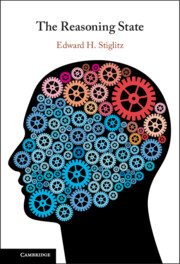6 results
6 - Reasoning Dividends
-
- Book:
- The Reasoning State
- Published online:
- 16 June 2022
- Print publication:
- 30 June 2022, pp 189-242
-
- Chapter
- Export citation
5 - The Reasoning Constraint
-
- Book:
- The Reasoning State
- Published online:
- 16 June 2022
- Print publication:
- 30 June 2022, pp 137-188
-
- Chapter
- Export citation
2 - Reasoning and Distrust
-
- Book:
- The Reasoning State
- Published online:
- 16 June 2022
- Print publication:
- 30 June 2022, pp 21-70
-
- Chapter
- Export citation
1 - Introduction
-
- Book:
- The Reasoning State
- Published online:
- 16 June 2022
- Print publication:
- 30 June 2022, pp 1-20
-
- Chapter
- Export citation

The Reasoning State
-
- Published online:
- 16 June 2022
- Print publication:
- 30 June 2022
2 - Knowledge Problems with Discretionary Monetary Policy
-
- Book:
- Money and the Rule of Law
- Published online:
- 13 May 2021
- Print publication:
- 03 June 2021, pp 22-57
-
- Chapter
- Export citation

